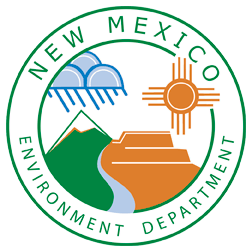The New Mexico Corrective Action Fund (CAF) is a critical part in the defense of human health by ensuring the protection of drinking water by identifying leaks from petroleum storage tanks for cleanup. The CAF funds are managed by NMED’s Petroleum Storage Tank Bureau and is generated by a per load fee collected at the loading dock from wholesale distributors of petroleum products per load of 8,000 gallons.
The CAF fund benefits include environmental cleanup and financial assurance, creating economic development opportunities through jobs, economic revitalization, and community service. CAF funds are used for costs of initial abatement, minimum site assessment, soil and water investigation, ongoing monitoring, remediation (including operation and maintenance costs, and post remediation monitoring. It can also be used for emergency response situations.
Without the CAF funds, tank owners and operators of hundreds of tank facilities throughout the State of New Mexico would be at risk of insufficient financial assurance coverage, which is required by state and federal law. Without this coverage, they would be unable to operate, forcing many rural residents to drive long distances to purchase fuel. Without the CAF funds, countless jobs would be threatened or eliminated because the CAF is accountable for hundreds of jobs for NMED, and for contractors throughout the state who perform investigations and the cleanup of petroleum storage tank releases, and other water protection projects
Requirements: CAF Pamphlet: Processes for Payment from the Corrective Action Fund
All Corrective Action Fund forms and applications are available below and on the NMED Forms page.
Financing for petroleum storage tank release clean-up work may also be available through the Clean Water State Revolving Loan Fund or the Brownfields Program.
CAF Claim Forms
- Responsible Party Reimbursement Claim Form
- Affirmation and Assent to Audit
- Cost Detail Form – Summary Sheet
- Disclosure Form – Consultant
- Disclosure Form – Tank Owner/Operator
- Disclosure Form Affidavit
- State Lead Claim Form
CAF Compliance Determination Forms
General CAF Reference Documents
CAF Reports
PLEASE NOTE WHEN LOOKING AT MONIES ASSOCIATED WITH CAF: Cash balance is NOT an accurate measure of available funds. Unobligated balance is a more accurate measure. Once funds are committed to addressing contamination, which usually takes years, they cannot be used for any other project. If unobligated balance is too low, no new cleanups can be started. Under state and federal law, $1 million must be kept in reserve for emergencies.
| Fiscal Year 2022 | July 2021-June 2022 |
| Fiscal Year 2021 | July 2020-June 2021 |
| Fiscal Year 2020 | July 2019 – June 2020 |
| Fiscal Year 2019 | July 2018 – June 2019 |


